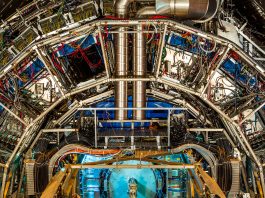The US Department of Energy (DOE) has revealed that it will be financing $17.5m to advance the research and technology encompassing particle accelerators.
In addition to funding world-leading research that will help achieve cutting-edge innovations in particle accelerators, the money will be employed to provide university-based traineeships. This will support cultivating a diverse and skilled production line of American scientists and engineers in the fields of high energy particle accelerators and instrumentation.
What are particle accelerators?
Particle accelerators are a revolutionary physics technology, capable of producing charged particles that can be utilised for a plethora of fields, such as scientific research, cancer therapy, medical imaging, semiconductor manufacturing, and many more. High energy physics instrumentation includes particle detectors, state-of-the-art, robust technologies that can endure harsh environments such as incredibly high levels of radiation, cryogenic temperatures, or limited access over long periods of time.
Dr Steve Binkley, the Acting Director of DOE’s Office of Science, said: “Particle accelerators and detector technology enables us to tackle challenges at the frontiers of science and benefits our nation’s high-tech industries, modern medicine, and national security.
“The awards announced today will advance the state-of-the-art in accelerator technology while helping deploy these technologies in commercial applications in the health, security, environmental, and industrial sectors.
“In addition, new programs at American universities will help ensure that our nation has a skilled and diverse workforce to develop the accelerator and detector technology needed to meet the scientific challenges of the future.”
How will be funding be distributed?
$6.5m of the total funding will be employed to finance 11 projects that are in the Accelerator Stewardship programme, an initiative that strives to ensure that the technology of particle accelerators is widely available throughout science and industry. They will achieve this by supporting use-inspired research and development on particle accelerators that will advance science, the economy, healthcare, and national security.
The research projects will comprise an array of scientists at 28 US institutions, which will include 12 universities, 11 companies, and five national laboratories. The institutions are collaborating to solve some of the most prominent problems in industrial, medical, environmental, and security applications of particle accelerators.
The research projects will aim to devise compact, low-cost particle accelerations for security and cancer therapy applications, high-power accelerator technologies for environmental and industrial applications, and research and development to advance ultrafast laser technology, beam physics, and novel superconductors. Additionally, the projects will conduct workshops to produce a long-term strategy for particle accelerators.
Investing in traineeships
£3m of the total fund will be employed to supplement traineeships at the Old Dominion University, an organisation well-versed in the technology that has already established a programme for particle accelerators. The grant includes partnerships with a national lab and two historically black colleges and universities (HBCU). These partnerships will be implemented to increase the number of qualified students in particle accelerator physics and engineering whose home institutions lack the proper infrastructure and programme, with a total of four traineeship awards being made since the programme’s inception in 2017.
Over five years, there will be £8m invested in supporting three graduate-level traineeship programmes that include teams from across over ten universities that all possess existing instrumentation programmes in high energy particle detector technologies. The programmes will collaborate with six Department of Energy National Laboratories and one Office of Science national scientific user facility to provide hands-on research experiences to the participants.
The projects were selected by competitive peer review under the DOE Funding Opportunity Announcements, FY2021 Research Opportunities in Accelerator Stewardship, DOE Traineeship in Accelerator Science & Engineering, and DOE Traineeship in High Energy Physics Instrumentation.









